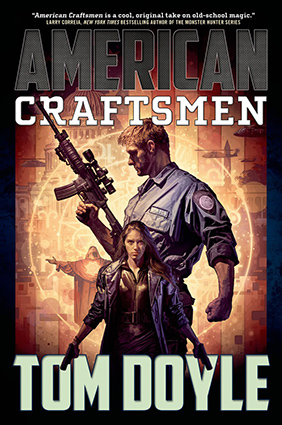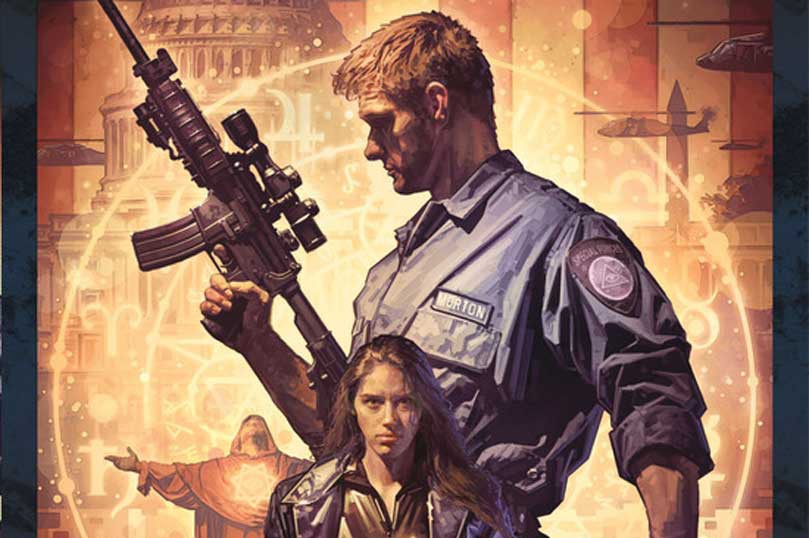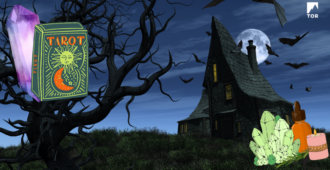opens in a new window Welcome back to opens in a new windowFantasy Firsts. Our program continues with a guest post from Tom Doyle about the crypto-historical past behind the heroes of American Craftsmen. The final book in the alternate-history series, opens in a new windowWar and Craft, will be available September 26th.
Welcome back to opens in a new windowFantasy Firsts. Our program continues with a guest post from Tom Doyle about the crypto-historical past behind the heroes of American Craftsmen. The final book in the alternate-history series, opens in a new windowWar and Craft, will be available September 26th.
Written by opens in a new windowTom Doyle
In my new contemporary fantasy novel, American Craftsmen, a craftsman or craftswoman is a soldier or spy magician, usually descended from a family of such practitioners. Though my thriller plot doesn’t assume any particular literary or historical knowledge, I hope you’ll enjoy finding some Easter eggs of this nation’s past in this thoroughly modern story. One of the reasons I wrote it is that too often when we search for an interesting angle on the fantastic, we neglect the weird mythos waiting for us in our own backyard.
The magical rules of my special ops world are partially drawn from early American fiction, which, let’s face it, is awfully creepy. The founders of our independent fictional canon aren’t known for stage comedies filled with wordplay or for novels centered on the marriage plot. Nor did they master the simple pragmatic optimism that on the surface seemed to be the national zeitgeist. Rather, in tales filled with occult obsessions and morbid fascinations, writers such as Edgar Allan Poe and Nathaniel Hawthorne explored the shadowy underside of the New World’s psyche.
For my novel, I’ve imagined that these authors had written thinly veiled fictional accounts which, woven together, formed a cryptohistorical backstory. The family of my main protagonist, Captain Dale Morton, is full of homages to writers and stories from America’s past. I’ve modeled two of Dale’s evil, inbred ancestorson the twins from Poe’s “The Fall of the House of Usher.” With a power inspired by Hawthorne’s The Scarlet Letter, the atheistic Dale can see the sins of others as glowing letters radiating from their bodies.
I created other abilities for my soldier-mages based on uncanny occurrences in military history. The primary power of the Mortons, the thing that makes Dale the most valuable solider-mage in the world, is the ability to change the local weather, for better or worse. Early in American Craftsmen, Dale uses this power to pursue a hostile sorcerer through a sandstorm. This magic was inspired by the number of times that weather completely altered the outcome of American battles. For instance, bad weather saved George Washington’s army at Brooklyn Heights, while an improvement in otherwise terrible weather allowed for the success of the D-Day invasion of Normandy.
But the most dangerous and readily available power that a craftsman has is over his opponent’s mind. I drew this power from those instances in war where confusion scatters an army or, as in the killing of Stonewall Jackson, causes death by friendly fire. My present-day craftspeople carry precautions against such psychic warfare, but these don’t save Dale Morton from an opponent’s curse, a curse that will by twists and turns lead him to the demonic horrors corrupting the heart of American magic.
Order Your Copy
opens in a new window opens in a new window
opens in a new window opens in a new window
opens in a new window opens in a new window
opens in a new window
opens in a new window opens in a new window
opens in a new window
Find Tom Doyle on Twitter at opens in a new window@tmdoyle2, on opens in a new windowFacebook, and on his blog.
(This is a rerun of a post that originally ran on May 5th, 2014.)






